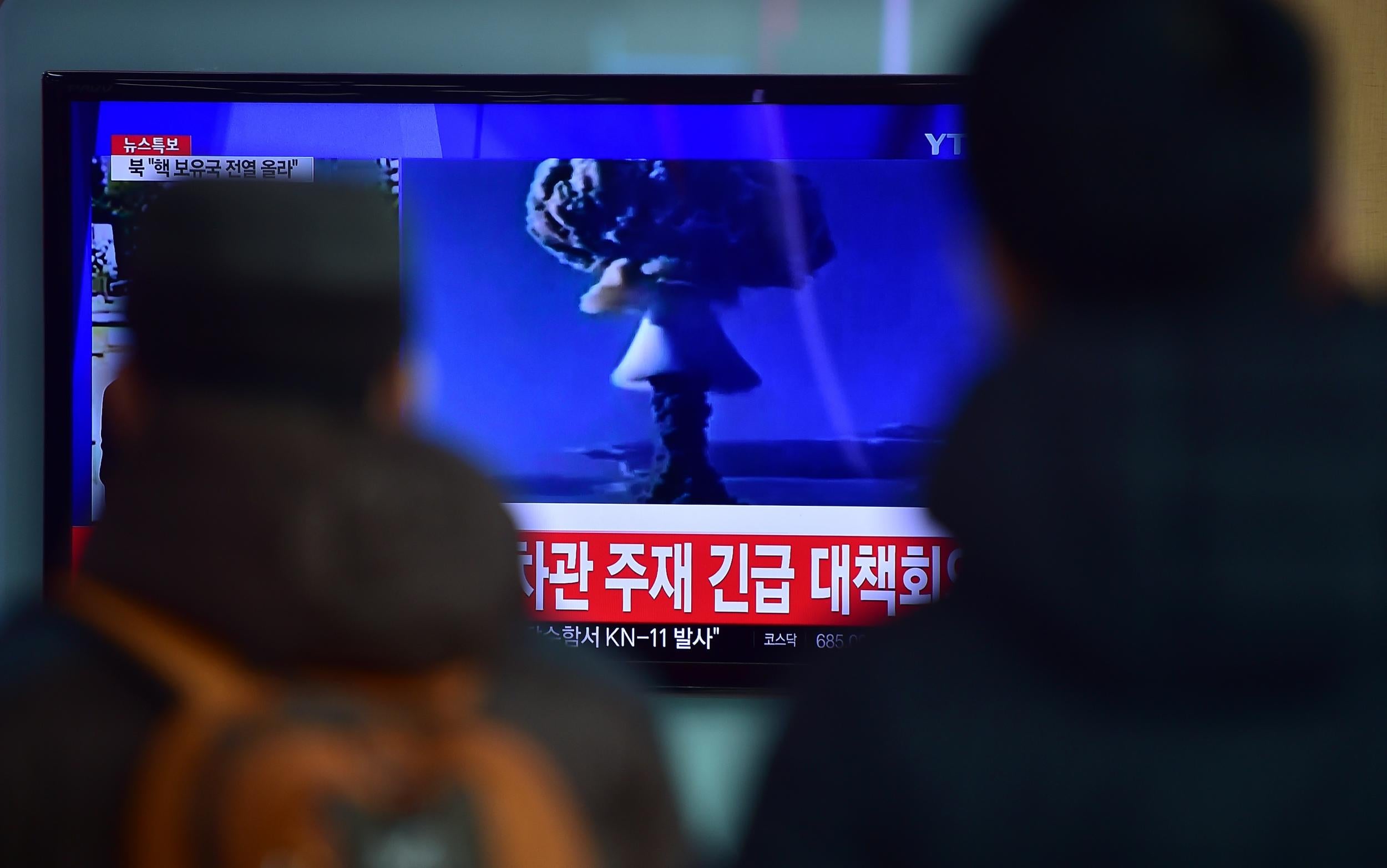White House expresses doubt over North Korean hydrogen bomb test claims
The UN Security Council promised to pursue new sanctions against the isolated country

Your support helps us to tell the story
From reproductive rights to climate change to Big Tech, The Independent is on the ground when the story is developing. Whether it's investigating the financials of Elon Musk's pro-Trump PAC or producing our latest documentary, 'The A Word', which shines a light on the American women fighting for reproductive rights, we know how important it is to parse out the facts from the messaging.
At such a critical moment in US history, we need reporters on the ground. Your donation allows us to keep sending journalists to speak to both sides of the story.
The Independent is trusted by Americans across the entire political spectrum. And unlike many other quality news outlets, we choose not to lock Americans out of our reporting and analysis with paywalls. We believe quality journalism should be available to everyone, paid for by those who can afford it.
Your support makes all the difference.The White House has expressed doubt over whether North Korea has actually successfully tested a hydrogen bomb.
According to reports, an initial analysis of the available data was "is not consistent" with North Korea's claims that they had deployed a hydrogen bomb for the first time, they said.
White House spokesman Josh Earnest said nothing had happened to change the USA's assessment of North Korea's technical or military capabilities, and added the government is still working to learn more about the claimed test.
Experts have echoed the White House's doubts, claiming that the explosion from the bomb was not large enough to have truly been created by a hydrogen bomb.
This White House announcement came after the United Nations (UN) Security Council said it "strongly condemns" the claimed test.
The council added it would immediately pursue sanctions against the country.
Elbio Rosselli Frieri, the head of the Security Council, said Council members had "previously expressed their determination to take further significant measures in the event of another DPRK (North Korea) nuclear test."
"In line with this commitment and the gravity of this violation, the members of the Security Council will begin to work immediately on such measures in a new Security Council resolution," he said.
This announcement came after an emergency meeting of the Council, which was called following the declaration from North Korea that it had tested a hydrogen bomb at a testing site in the north of the country for the first time.
The veracity of the claim could not be immediately verified, but American and Japanese scientists both recorded seismic waves that were likely to have been caused by an explosion at the time of the claimed test.
A statement from North Korea's state news agency KCNA hailed the test as a "world startling event" that marked a "higher stage of the DPRK's development of nuclear force."
Despite the Security Council's announcement, the delegate for Russia, a permanent member of the Council, said it would be going "too far" to day that Russia supports more sanctions against North Korea.
Ambassador Vitaly Churkin said Russia, one of North Korea's few allies, has yet to see a draft of a resolution that the Council says it will begin working on immediately.
However, Volodymyr Yelchenko, UN ambassador for Ukraine, which is currently a temporary member of the Council, said no member nation spoke out against imposing further sanctions on North Korea during the meeting, which was held behind closed doors.
Join our commenting forum
Join thought-provoking conversations, follow other Independent readers and see their replies
Comments